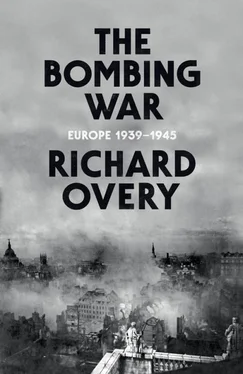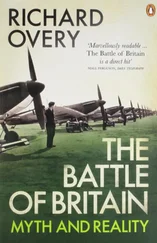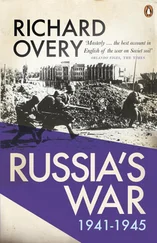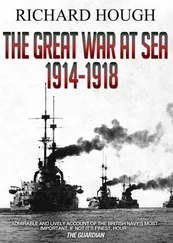Second, bombing has all too often been treated as if it could be abstracted in some way from what else was going on. Bombing, as the account here will show, was always only one part of a broad strategic picture, and a much smaller part than air force leaders liked to think. Even when bombing was chosen as an option it was often by default, always subject to the wider political and military priorities of the wartime leadership and influenced by the politics of inter-service rivalry which could limit what ambitious airmen wanted to achieve. Whatever claims might be made for air power in the Second World War, they need to be put into perspective. Bombing in Europe was never a war-winning strategy and the other services knew it.
Third, most accounts of bombing deal either with those doing the bombing or with the societies being bombed. Though links between these narratives are sometimes made, the operational history is all too often seen as distinct from the political, social and cultural consequences for the victim communities: a battle history rather than a history of societies at war. The following account looks at bombing from both perspectives – what bombing campaigns were designed to achieve, and what impact they had in reality on the populations that were bombed. Armed with this double narrative, the issues of effectiveness and ethical ambiguity can be assessed afresh.
No doubt this is an ambitious project, both in geographical scope and narrative range. Not everything can be given the coverage it deserves. This is not a book about the post-war memory of bombing, on which there is now a growing literature that is both original and conceptually mature. Nor does it deal with the reconstruction of Europe in the decade after the end of the war in more than an oblique way. Here once again there is a rich and expanding history, fuelled by other disciplines interested in issues of urban geography and community rebuilding. This is a history limited to the air war in Europe as it was fought between 1939 and 1945. The object has been to research areas where there is little available in the existing literature, or to revisit established narratives to see whether the archive record really supports them. I have been fortunate in gaining access to two new sources from the former Soviet archives. These include German Air Force documents covering the period of the Blitz, about which remarkably little has been written from the German side. There is also a rich supply of material on the Soviet air defence system and the civil defence organization, and the first statistics on Soviet casualties and material losses caused by German bombing. These can be found in the Russian State Military Archive (RGVA) in Moscow and the Central Archive of the Ministry of Defence of the Russian Federation (TsAMO), Podolsk. I am very grateful to Dr Matthias Uhl of the German Historical Institute in Moscow for obtaining access to these sources, which make it possible to reconstruct two important but neglected aspects of the bombing war. I have also been fortunate in finding a large collection of original Italian files from the Ministero dell’Aeronautica (Air Ministry) in the Imperial War Museum archive at Duxford, which cover both Italian anti-aircraft defences and the Italian bombing of Malta, the most heavily bombed site in Europe in 1941–2. I would like to record my thanks to Stephen Walton for making these records freely available to me.
My second purpose has been to re-examine the established narratives on the bombing war, chiefly British and American, by looking again at archive sources in both countries. For a long time the official histories have shaped the way the story has been told. Although the British history by Charles Webster and Noble Frankland published in 1961 is among the very best of the British official histories of the war (later dismissed by Air Marshal Harris as ‘that schoolboy’s essay’), the four volumes reflected the official record in The National Archive and focused narrowly on the bombing of Germany rather than Europe. The American seven-volume official history by Wesley Craven and James Cate also follows closely the operational history of the United States Army Air Forces, of which the bombing campaign was only a part. Written in the 1950s, the source base also reflected the official record, now deposited in National Archives II at College Park, Maryland, and the Air Force Historical Research Agency, Maxwell, Alabama. However, much of the history of the bombing campaign and the politics that surrounded it can only be fully understood by looking at private papers of individuals and institutions, or at areas of the official record not directly linked to bombing operations or which were originally closed to public scrutiny because they raised awkward questions. The extensive preparations for gas and biological warfare, for example, could not easily be talked about in the 1950s (and many of the records remained closed for far longer than the statutory minimum); nor could intelligence, whose secrets have gradually been unearthed over the past 30 years.
On the experience of being bombed there is less of an official voice. Only in Britain did the civil series of official histories cover civil defence, production and social policy. These are still a useful source but have been superseded in many cases by more detailed and critical historical writing. I have used less well-known local records to supplement the central archive. Particularly useful were the civil defence papers deposited at the Hull History Centre, which tell the story of a city subjected to bombing from summer 1940 to the last recorded raid on Britain, in March 1945, and the records covering the north-east deposited at the Discovery Museum in Newcastle-upon-Tyne. For other European societies there is no official history (though the volumes on the home front produced by the semi-official Military History Research Office [ Militärgeschichtliches Forschungsamt ] in Potsdam serve the same purpose very successfully), but there is a plethora of local studies on bombed cities in every state that was subjected to raids. These studies supply an invaluable source on local conditions, popular responses, civil defence performance and casualties; without them it would have been impossible to reconstruct the history of the bombed societies in France, Italy, the Low Countries and Germany. Where possible these studies have been supplemented by national records deposited in Berlin, Freiburg im Breisgau, Rome, Paris and on Malta (which has a useful civil defence archive positioned not many miles from Malta’s beautiful beaches).
It is necessary to say something about the use of statistics throughout the book. Many wartime statistics are known to be deficient for one reason or another, not least those which have survived from the popular beliefs of the wartime period about levels of casualty. I have relied in the text on figures for the dead and injured from what is available in the archive record, though with the usual caveats about reliability and completeness. I have tried as scrupulously as possible to allow for reasonable margins of error, but there are nevertheless wide differences between the statistical picture presented here and many of the standard figures, particularly for Germany and the Soviet Union. In most cases figures of bomb casualties have had to be scaled down. This is not intended in any way to diminish the stark reality that hundreds of thousands of Europeans died or were seriously injured under the bombs. The search for more historically plausible statistics does not make the killing of civilians from the air any more or less legitimate; it simply registers a more reliable narrative account of what happened.
In a book of this scale it has been difficult to do full justice to the human element, either for those doing the bombing or for those being bombed. This is, nonetheless, a very human story, rooted in the wider narrative of twentieth-century violence. Throughout these pages there are individuals whose experiences have been chosen to illuminate an issue which touched thousands more, whether aircrew fighting the elements and the enemy at great physical and psychological costs, or the communities below them who became the victims of a technology that was never accurate enough to limit the wide destruction of civilian lives and the urban environment. It is one of the terrible paradoxes of total war that both the bomber crew and the bombed could be traumatized by their experience. Looking at the bombing war from the distance of 70 years, this paradox will, I hope, strengthen the resolve of the developed world never to repeat it.
Читать дальше
Конец ознакомительного отрывка
Купить книгу












